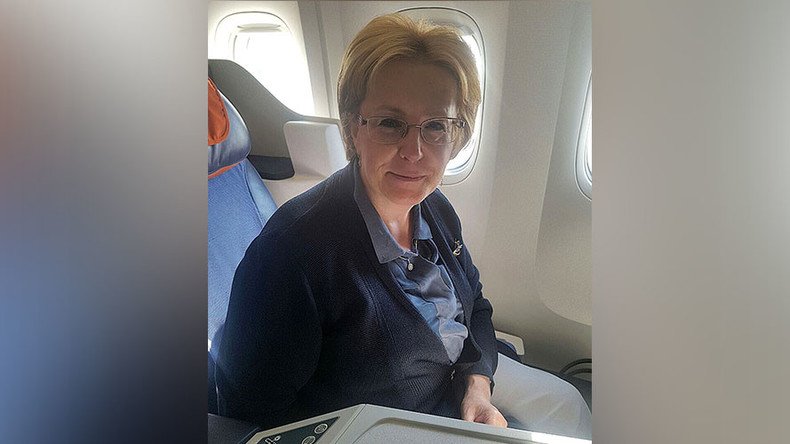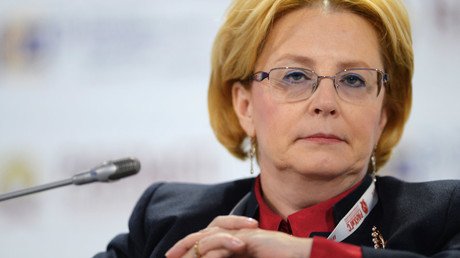Russian health minister saves woman's life on New York-bound flight

An airplane en route from Moscow to New York was forced to land in St. Petersburg after one of the passengers suffered a stroke. The woman was aided by the Russian health minister, who happened to be on the same flight.
The Aeroflot Boeing 777 flight landed in St. Petersburg, northern Russia, around 12pm Moscow time after one of the passengers suffered a stroke. Russia’s health minister, Veronika Skvortsova, performed first aid on the woman, possibly saving the passenger’s life, before the airport medical crew arrived.
RT staff, traveling to New York for the Emmy Awards, were also on board. Here’s how RT’s deputy chief editor, Elizaveta Brodskaya, described the incident:
“We saw that a woman sitting next to us became ill. She turned very pale and passed out. The staff asked the passengers if there was a doctor on the plane who could help with first aid. For a good half an hour the minister and her team were busy helping the patient. They brought a suitcase with equipment. Skvortsova listened to the patient with a stethoscope and checked her pulse before moving on to first aid treatment.”
By the time the plane had landed and the emergency crews at Pulkovo Airport had arrived, the 47-year-old woman had regained consciousness.
RT then spoke to Health Minister Skvortsova, a fifth-generation doctor, asking her about how often she was called on to use her practical rather than administrative skills.
“Usually it happens in transport: on trains or airplanes. This is the fifth or sixth time when I have had to step in and usually it happens during landing or take-off and has to do with the vascular system,” Skvortsova told RT.
“This time the patient suffered an acute violation of circulatory activity of the brain.
“Her pulse was hardly there so it could have been a temporary cardiac failure or a severe dysfunction of the heart rhythm that essentially led to a stroke,” the health minister added.
Skvortsova also told RT that she always carries essential medical aid for extreme cases such as this, and that she’s glad that this time they were able to help. “What we gave her helped. In about 20-25 minutes she was better, started talking, told us her age and name and answered some questions.”
According to the minister, the woman’s health is under no immediate threat now.













